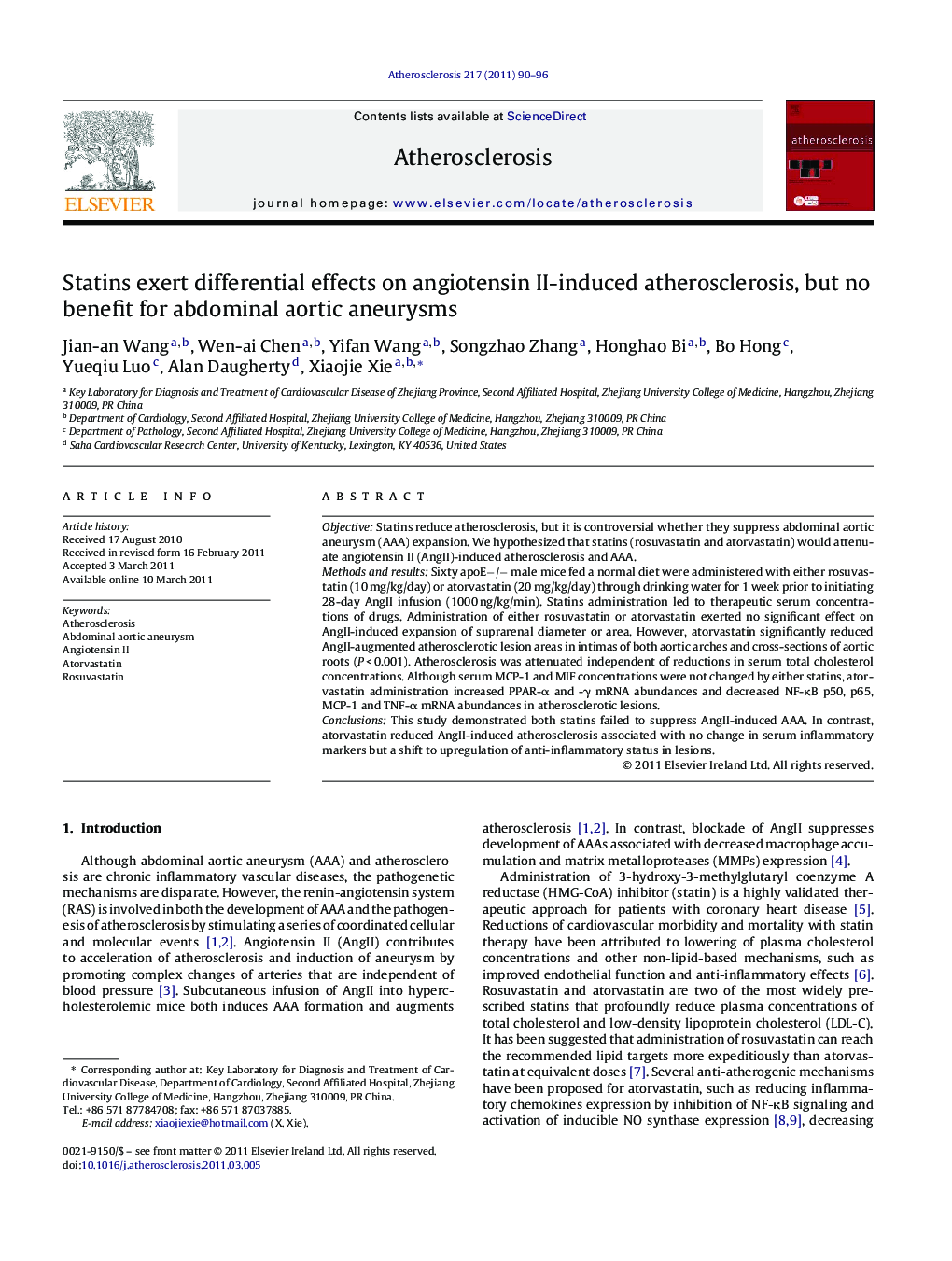| Article ID | Journal | Published Year | Pages | File Type |
|---|---|---|---|---|
| 5949553 | Atherosclerosis | 2011 | 7 Pages |
ObjectiveStatins reduce atherosclerosis, but it is controversial whether they suppress abdominal aortic aneurysm (AAA) expansion. We hypothesized that statins (rosuvastatin and atorvastatin) would attenuate angiotensin II (AngII)-induced atherosclerosis and AAA.Methods and resultsSixty apoEâ/â male mice fed a normal diet were administered with either rosuvastatin (10 mg/kg/day) or atorvastatin (20 mg/kg/day) through drinking water for 1 week prior to initiating 28-day AngII infusion (1000 ng/kg/min). Statins administration led to therapeutic serum concentrations of drugs. Administration of either rosuvastatin or atorvastatin exerted no significant effect on AngII-induced expansion of suprarenal diameter or area. However, atorvastatin significantly reduced AngII-augmented atherosclerotic lesion areas in intimas of both aortic arches and cross-sections of aortic roots (P < 0.001). Atherosclerosis was attenuated independent of reductions in serum total cholesterol concentrations. Although serum MCP-1 and MIF concentrations were not changed by either statins, atorvastatin administration increased PPAR-α and -γ mRNA abundances and decreased NF-κB p50, p65, MCP-1 and TNF-α mRNA abundances in atherosclerotic lesions.ConclusionsThis study demonstrated both statins failed to suppress AngII-induced AAA. In contrast, atorvastatin reduced AngII-induced atherosclerosis associated with no change in serum inflammatory markers but a shift to upregulation of anti-inflammatory status in lesions.
